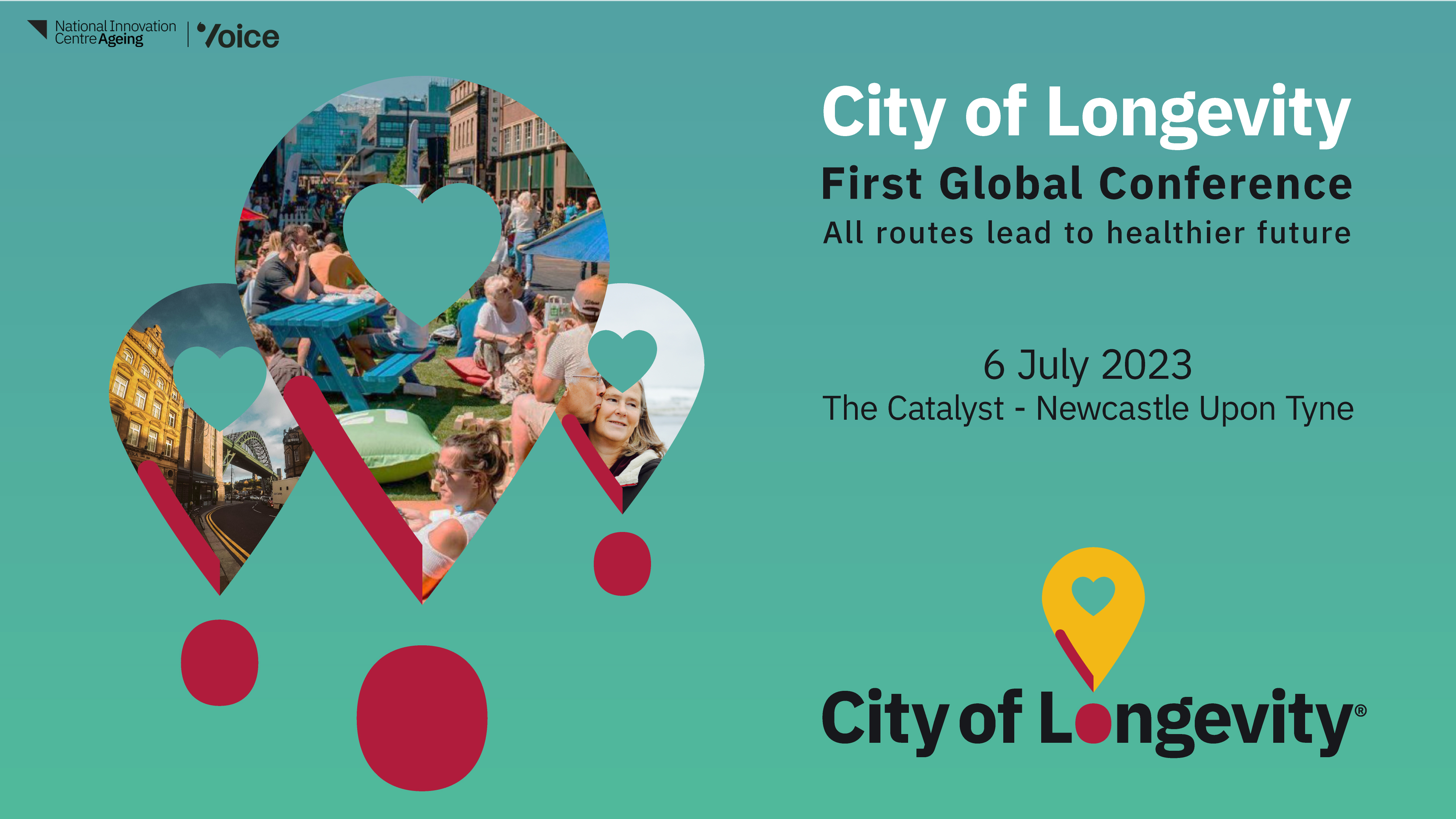
Newcastle Upon Tyne, UK – The UK National Innovation Centre for Ageing (NICA) has launched a new global initiative to promote healthy ageing and longevity in the urban environment.
The City of Longevity project is the first of its kind and aims to create an inclusive, accessible, and equitable urban environment that supports the older population while enabling younger people to thrive as they age.
The project will be unveiled at the inaugural City of Longevity Global Conference on July 6th in Newcastle Upon Tyne, one of the founding member cities of City of Longevity. The conference will bring together critical partners, experts, and thought leaders from around the world to discuss interventions that can extend the healthy lifespan for all.
The City of Longevity is a concept that embraces the transition from an ageing society to a longevity society and further considers the role of cities as proactive actors in suggesting and supporting healthier lifestyles for residents and visitors through day-to-day touchpoints.
Strongly focused on people (residents, visitors, tourists) engagement as the key driver for co-designing the future, the City of Longevity also explores how to tackle the cumulative effects on the urban environment from a life-course perspective in urban planning and design, and advises how to leverage data to measure the impact and success of any interventions.
The July 6th conference will be attended by representatives from Stanford University, The World Bank, City Government of Buenos Aires, City of Tel Aviv, City of Bergamo, City of Coimbra Consortium, City of Berlin, City of Belfast, City of Barcelona and a number of other local and global stakeholders.
The attendees will discuss and formalise the key performance indicators for the City of Longevity concept, which have been developed in partnership with Stanford University’s Centre on Longevity and build on research undertaken by NICA and other international institutions.
Once implemented, the City of Longevity framework will provide a comprehensive toolkit for local government, planners, policy makers, consumer brands and citizens to implement positive behavioural change and build healthier communities.
Nic Palmarini, Director of the UK National Innovation Centre for Ageing, said: “Cities are more exposed to the consequences of age-related social and demographic changes due to the faster nature of change, living standards, more complex social composition and the greater degree of human design and initiative that their functioning requires.
“Isn’t it true that what national governments are not able to do about climate change can be done by city leaders? For this reason, not only do they have the fundamental role in defining how to react to our ageing society simply, but they also have the critical opportunity to suggest “proposals” rather than “responses” to this phenomenon.”
Pam Smith, Chief Executive of Newcastle City Council, said: “As a city council, we are committed to supporting our residents at all stages of their lives and take seriously our responsibility for promoting health, wealth, and wellbeing across all communities.
“Following the publication of our first ever Inclusive Economic Strategy, we are more focused than ever on how a vibrant urban economy can support healthy ageing and longevity. We look forward to hearing from others at the City of Longevity global conference about how they are tackling demographic change and the challenges associated with an ageing population.”
For more information about the City of Longevity Global Conference, visit https://uknica.co.uk/ or contact the UK National Innovation Centre for Ageing on +44 (0) 191 208 2503 or info@uknica.co.uk.







